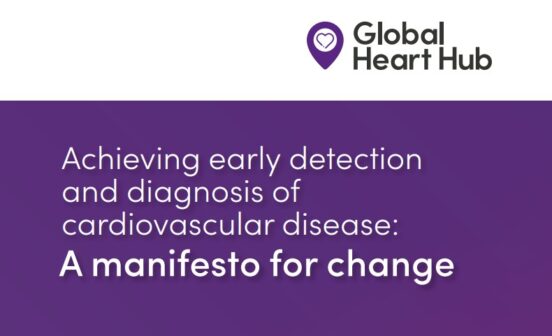Diagnostic Inflammatory Marker Predicts 20-Year Cardiovascular Risk in Patients with Hypertension

A major new study led by researchers at Imperial College London, including members of the NIHR Imperial BRC Cardiovascular Theme, has revealed that a simple blood test for inflammation could help predict long-term cardiovascular risk in individuals with high blood pressure, decades before any clinical event occurs.
Published in eBioMedicine, the research draws on longitudinal data from 5,294 participants in the UK arm of the Anglo-Scandinavian Cardiac Outcomes Trial (ASCOT Legacy). The investigators examined baseline levels of high-sensitivity C-reactive protein (hsCRP), a hepatic acute-phase protein that reflects systemic inflammation.
A Modest Elevation, a Major Risk
The analysis showed that individuals in the highest tertile of hsCRP levels faced a 25–30% greater risk of myocardial infarction, stroke, or all-cause mortality over the 20-year follow-up period compared to those in the lowest tertile. Notably, even a modest elevation in hsCRP at baseline conferred excess cardiovascular risk, despite participants appearing otherwise healthy at enrolment.
While hsCRP was not associated with stroke incidence over the long term, suggesting a different pathophysiological basis for cerebrovascular events, it was a powerful independent predictor of coronary and overall mortality. The authors highlight that the incorporation of hsCRP into conventional risk models improved prognostic discrimination by nearly 10%, supporting its potential utility in routine cardiovascular risk stratification.
The Synergy of Lipids and Inflammation
A particularly striking finding was that the concurrent elevation of both LDL-cholesterol and hsCRP conferred the highest risk of future adverse outcomes. In contrast, an isolated rise in cholesterol in the presence of low-grade inflammation (hsCRP < 2 mg/L) did not significantly raise risk. This supports the growing recognition that inflammation and lipid accumulation act synergistically in the atherogenic process and underscores the rationale for dual-pathway therapeutic strategies.
Towards Clinical Translation
The findings suggest that measuring hsCRP in patients with hypertension could inform earlier intervention strategies, including the initiation of statins or targeted anti-inflammatory therapies. Pilot studies are being considered to assess whether incorporating inflammatory profiling into hypertension management can reduce long-term cardiovascular events and mortality.
Professor Ramzi Khamis, Professor of Cardiology at the National Heart and Lung Institute, commented: “This important work underscores the need to identify and target residual inflammatory risk in patients with coronary artery disease. We are now moving beyond cholesterol alone. At the recent Imperial Vulnerable Plaque and Patient Meeting (VPM), we laid out a roadmap for future translational studies aimed at refining both diagnostic and therapeutic tools that address vascular inflammation. This study strengthens the case for integrating hsCRP-guided strategies into routine cardiovascular care, particularly in the context of hypertension.”
As cardiovascular medicine continues to evolve towards personalised prevention, the integration of simple, scalable biomarkers such as hsCRP into clinical workflows could play a critical role in identifying patients at greatest risk long before symptoms arise.





